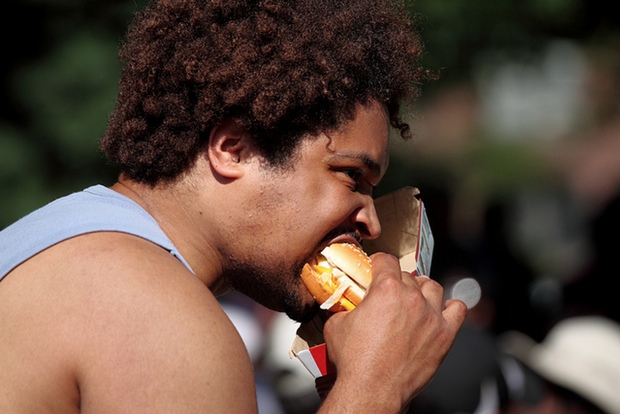Whether you’re stressed or just starved out of your mind, it’s easy to devour the food on your plate within minutes, crumbs included.
But next time the hunger games strike, heed your mom’s advice: Chew slowly. New research shows that people who eat fast are two and a half times more likely to develop type 2 diabetes. The research was presented last week at the joint International Congress of Endocrinology and European Congress of Endocrinology.
In a study involving 234 newly diagnosed patients with type 2 diabetes, researchers asked them to report their eating speed compared to others, as slower, the same, or faster. The control group included 468 diabetes-free people. Researchers also noted the participants’ height, weight, and waist and hip circumference, plus family medical history, exercise habits, and education.
Turns out that those who reported eating quickly were two more times likely to be at risk for type 2 diabetes, or diabetes mellitus. They were also likely to have a higher body mass index and lower education level.
The researchers note that eating quickly has been associated with obesity, but this is the first time eating speed has been identified as an independent risk factor for type 2 diabetes.
Type 2 diabetes is the most common form of the disease, and typically affects those ages 50 to 60. People with this type do not produce enough insulin, or their bodies have become resistant to it.













